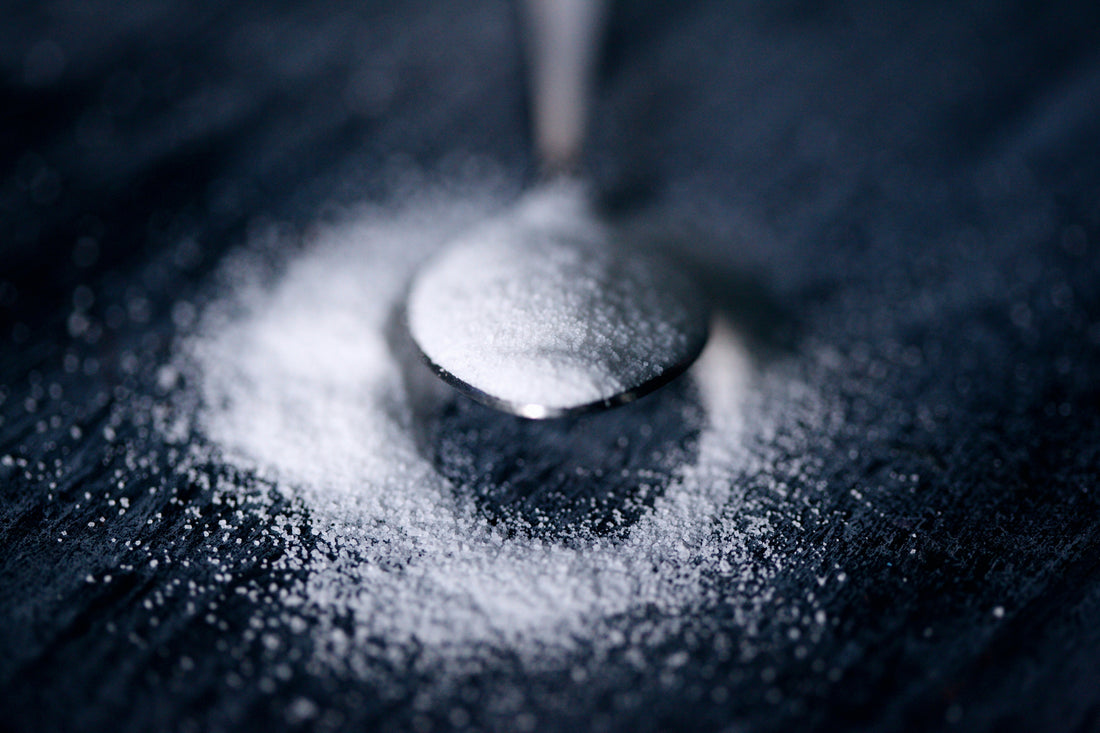Sugar and honey, the two most common sweetening options, have graced our kitchens for centuries. But when trying to choose the better option for your health, the answer isn't as straightforward as adding a spoonful to your tea. Both sweeteners share similarities, but differences set them apart as well, influencing how your body reacts to their sweetness. Read along as we dive into the fascinating world of these culinary staples to answer the burning question: honey or sugar, which one should you use?
Honey: Nature's Golden Goodness
Honey is a natural product derived from the nectar of flowers, collected and processed by honeybees. This liquid gold boasts of a unique composition, containing around 80% sugars (fructose and glucose), 18% water, and 2% of a mix of minerals, vitamins, pollen, and protein. While the exact proportions vary depending on the flower source, honey has a lower glycemic index (GI) compared to sugar.
The glycemic index, a measure of how quickly a food raises blood sugar levels, is crucial for understanding the impact of sweeteners on your body. Honey's lower GI score indicates a slower and more sustained release of energy into the bloodstream, preventing the sugar crash often associated with refined sugar.
Sugar: The Refined Choice
Table sugar, also known as sucrose, is a highly refined product typically derived from sugarcane or sugar beets. Unlike honey, sugar offers minimal to no additional nutrients, consisting almost entirely of fructose and glucose in a 50:50 ratio. This refined composition leads to a higher glycemic index compared to honey, causing a quicker rise in blood sugar levels.
While both honey and sugar provide the same amount of calories per teaspoon (around 22), honey offers a trace amount of vitamins, minerals, and antioxidants absent in sugar. These include vitamin B complex, vitamin C, potassium, calcium, and phenolic compounds. The quantities are small, but they might contribute to overall health and well-being. Additionally, raw, unpasteurized honey may contain minimal amounts of beneficial bacteria with potential gut health benefits.
Honey's Potential Benefits
- Antimicrobial properties: Honey has been revered for its natural healing properties for centuries. It possesses antimicrobial properties, meaning it can fight against certain bacteria and fungi, potentially aiding wound healing and preventing infections.
- Rich in antioxidants: Honey contains various antioxidants, which help combat harmful free radicals in the body, potentially reducing the risk of chronic diseases like heart disease and cancer.
- Improved gut health: Some studies suggest that the prebiotics and beneficial bacteria found in raw honey might contribute to a healthy gut microbiome, potentially aiding digestion and immune function. However, more research is needed to confirm these benefits.
- Anti-inflammatory properties: Some studies suggest that honey might possess anti-inflammatory properties. While the research is still ongoing, these properties could potentially contribute to alleviating symptoms associated with chronic inflammatory conditions like arthritis, asthma, and certain skin conditions.
Important to note:
- The potential health benefits of honey are primarily linked to unprocessed Pasteurized honey undergoes heat treatment, which may destroy some of its beneficial enzymes and antioxidants.
- Infants under 1-year-old should never consume honey because of the risk of botulism.
Now that we’ve talked about their various compositions and benefits, let’s compare their disadvantages.
Disadvantages of Honey
Despite its potential benefits, honey still falls under the category of added sugars. Overconsumption of any added sugar, including honey, can contribute to weight gain, increased risk of heart disease, and other health problems. Additionally, honey can trigger allergic reactions in some individuals, and its higher viscosity compared to sugar might not be ideal for all baking applications.
Disadvantages of Sugar
- Rapid blood sugar spikes: The rapid rise and fall in blood sugar levels caused by sugar consumption can lead to energy crashes, fatigue, and cravings for more sugar, creating a vicious cycle.
- Contributes to weight gain: Excessive sugar intake can lead to weight gain and increase the risk of obesity, which is linked to various health problems, including heart disease, type 2 diabetes, and certain cancers.
- Dental issues: Sugar is a major contributor to tooth decay and cavities, as it promotes the growth of bacteria in the mouth and produces acid, which can erode tooth enamel.
So, Honey or Sugar? The Verdict
While both honey and sugar provide sweetness, honey offers a potentially healthier alternative thanks to its lower GI, potential health benefits, and unique flavor profile. However, the ideal choice depends on your individual needs and preferences. Here's a quick guide:
Choose honey for: Baking applications where its sweetness and moisture content are beneficial, occasional sweetening of beverages or foods, and potential health benefits (remember, moderation is key).
Choose sugar for: Recipes where its consistency and lack of additional flavors are desired, individuals with honey allergies, and precise sweetness control in baking.
However, it's crucial to remember that honey is still a form of sugar, and moderation is key to maintaining a healthy diet. Enjoy the sweetness of life, be it from honey or sugar, but remember to keep it balanced!
References
Healthline (2023). Honey vs. Sugar: Which Sweetener Should I Use? Retrieved from https://www.healthline.com/health/food-nutrition/honey-vs-sugar
Medical News Today (2023). Is honey better for you than sugar? Retrieved from https://www.medicalnewstoday.com/articles/317728

